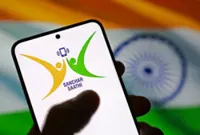Vishing, short for voice phishing, is an identity fraud scam utilising a phone call or voicemail, according to the United States Postal Inspection Service. — Unsplash
Scammers are always looking to separate you from your information and money. One of the more common ways they’re trying now is something called vishing.
Vishing, short for voice phishing, is an identity fraud scam utilising a phone call or voicemail, according to the United States Postal Inspection Service. Scammers will call and leave a voicemail and impersonate someone they are not, and attempt to elicit sensitive information, like log-in credentials, personal identifying information, credit card numbers or other banking details.
Sometimes, these imposters pretend to be Postal Inspectors or other people in authority who go as far as trying to coerce the target with threats of arrest or some other punishment.
What to do if you get a phone call or voicemail?
If you get a phone call or voicemail from someone claiming to be a police official or other law enforcement official alleging there is an active warrant out for your arrest, be careful. These people often impersonate law enforcement, or other positions of authority, and will manufacture a threatening situation and sense of urgency in an attempt to coerce you into sending them money or providing personal information to steal your identity.
The imposter’s phone number is typically blocked and may be spoofed or faked, displaying a number other than the actual one used by the imposter. There are even cases where a legitimate number is spoofed to make it look like a known entity is calling.
How to protect yourself
Postal inspectors or other officials do not reach out directly to consumers to demand money or personal information, so don’t give anything out on the phone. And if you get a voicemail that seems suspicious, don’t return the phone call and delete the message. – al.com/Tribune News Service





